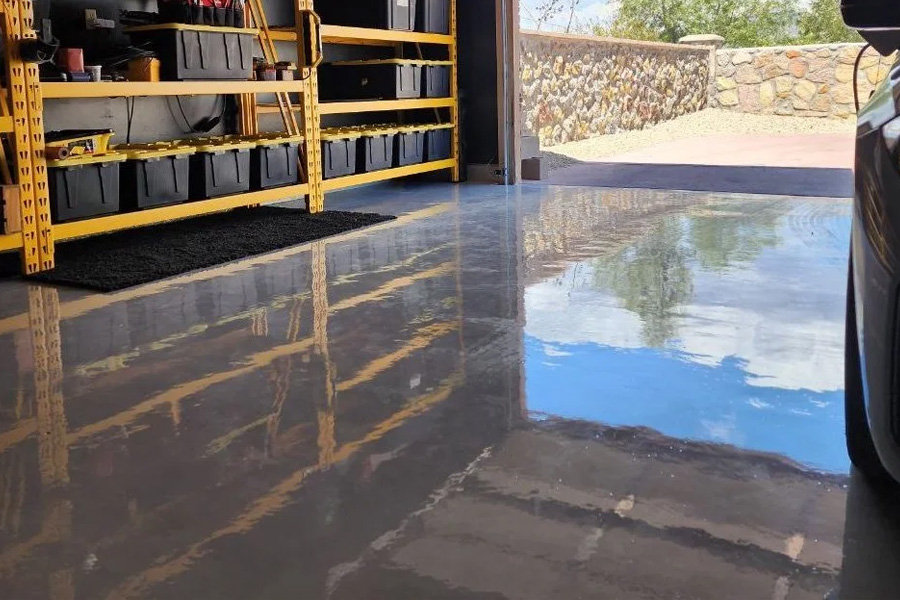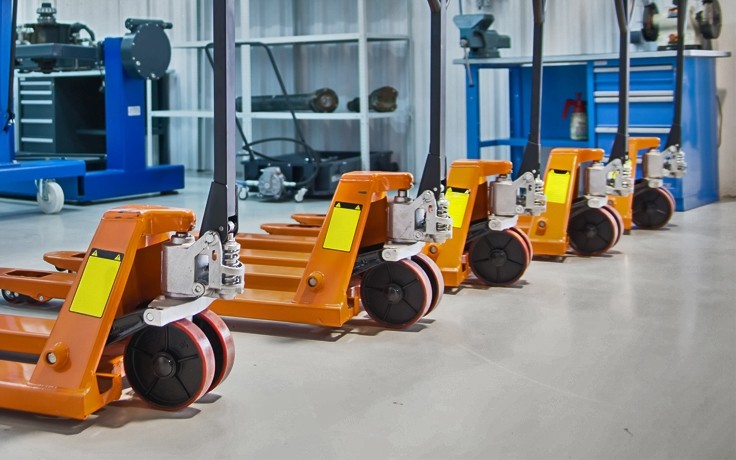Why Epoxy Flooring: Advantages of the Choice

Image Source: speedway-flooring.com
Epoxy commercial flooring has become the “golden mean” between industrial toughness and a presentable appearance. It forms a perfectly level, tightly bonded shell over concrete that stands up to heavy cart traffic, spilled chemicals, and regular cleaning. If you are modernizing a warehouse, sales floor, production shop, or service center, an epoxy system from the Speedway lineup will help you boost safety, hygiene, and aesthetics at the same time—without a sky‑high budget or long downtime.
What is commercial epoxy flooring and its key properties
Epoxy is a reactive resin plus hardener that polymerizes into a monolithic layer after it’s applied to properly prepared concrete. Depending on the system (thin‑film, self‑leveling, quartz‑filled, heavy‑traffic), thickness can vary, but the principle is the same: strong adhesion, chemical resistance, and a sealed, dust‑free surface. Before choosing a system, it’s worth seeing what exactly makes epoxy the “workhorse” of commercial spaces:
- Seamless and impermeable. No joints to trap dirt, moisture, or bacteria; easier to clean and disinfect.
- Impact and wear resistance. Stands up to dropped tools, pallet‑jack traffic, and forklift wheels.
- Chemical resistance. Resists fuels, oils, salts, most household and many industrial chemicals.
- Dustproofing. Seals concrete, eliminating cement dust—critical for warehouses and electronics.
- Decorative range. Solid RAL colors, flakes, metallic effects for branded zones.
- Slip‑resistance options. Quartz aggregate or a textured topcoat give you friction control for specific conditions.
After such a system is installed, the frequency of localized slab repairs drops, daily cleaning gets easier, and the space looks organized and professional. For facilities where customer experience matters as much as operational efficiency, that’s a critical advantage.
Practical advantages in different types of facilities
Epoxy floors are versatile, but each sector “squeezes” different strengths from its system. Before you pick a formula, assess the nature of your loads: wheeled traffic, exposure to food acids, temperature swings, or strict sanitation protocols. Here’s a far‑from‑complete list of typical applications to help you orient:
- Retail stores and sales floors. A smooth, glossy surface amplifies lighting and simplifies overnight cleaning.
- Warehouses and logistics. Drive‑lane and storage‑zone markings go right on the floor and don’t wear off under pallet jacks.
- Auto service bays and parking decks. Protection from oils and de‑icers; tire marks clean off easily.
- Food production / HoReCa. Seamlessness + easy sanitation; food‑grade system certifications available.
- Medical and pharma facilities. Smooth, non-porous surface that tolerates high‑strength disinfectants.
- Education and fitness clubs. Bright color fields for wayfinding; high durability under intense foot traffic.
In each of these scenarios, epoxy plays different “roles”—it can be a design accent or a sanitary barrier. It’s important to choose not only the color but also the thickness, texture, and chemistry so the floor delivers its full service life without delamination.
Substrate preparation—70% of epoxy floor longevity
No matter what epoxy costs, it’s pointless without properly prepared concrete. The standard technical sequence includes mechanical grinding, industrial vacuum dust removal, a residual‑moisture test, and application of a deep‑penetrating primer. Next comes an epoxy skim coat / scratch coat to fill pores and microcracks, after which the main layer is raked to the specified thickness. If needed, quartz is broadcast into the wet layer and a final coat is applied: gloss, satin, or matte. Controlling slab and air temperatures during cure is critical—sharp swings cause microcracking. Following the spec allows light foot traffic as soon as the next day, with full mechanical traffic after the system reaches design strength (usually several days, per the manufacturer’s instructions).
Why choose epoxy flooring?
Epoxy commercial flooring is an investment in order, safety, and long‑term durability. It helps maintain hygiene standards, speeds cleaning, withstands equipment loads, and at the same time elevates branded space with color and gloss. Evaluate the type of facility, the condition of your concrete, and sanitation requirements—and the right epoxy system will perform for years, paying you back daily with every clean, safe, and attractive square foot of your floor.
Leave a reply
You must be logged in to post a comment.













